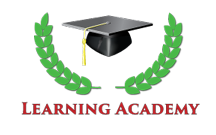
- Description
- Objectives
- Outline
- Materials
- System Requirements
To meet the needs of every gifted student, differentiating curriculum is not an option, it’s a necessity! Our Teaching Gifted Learners course demystifies challenges that teachers may face when creating curriculum for the gifted learner. By taking this course, you’ll be able to identify gifted students and recognize how to implement research-supported strategies in the classroom. We will target the three components of differentiation – context, process, and product. Not all gifted students are alike – that’s why differentiating curriculum is so important.
After completing this course, you should be able to:
- Recognize how to identify gifted learners and how to prepare a differentiated classroom
- Identify how to create a challenging classroom environment for students and how to differentiate content
- Recall the three components of differentiation
- Describe how to encourage creativity for gifted learners
Teaching Gifted Learners Module 1
Preparing a Differentiated Classroom for Gifted Learners
It is essential that educators have a research-based understanding of the term ‘gifted’ before they begin making decisions and creating curriculum for gifted learners. Module one helps to identify the term ‘giftedness’ and examines the characteristics of the gifted learner. We also explore characteristics of a differentiated classroom and what gifted students need to learn in school.
- Defining Giftedness
- Identifying Gifted Learners
- Characteristics in a Truly Differentiated Classroom
- How Gifted Students Learn
- What Gifted Learners Need in School
Teaching Gifted Learners Module 2
Curriculum Compacting and Differentiating Content
Curriculum compacting is a differentiation strategy that creates a challenging learning environment for gifted students. Module two explores how to create that challenging environment, how to differentiate content, and create tiered assignments. We also examine the importance of individualized learning contracts and orbital studies.
- How to Compact the Curriculum
- Differentiating the Content
- Tiered Assignments
- Learning Contracts
- Orbital Studies
Teaching Gifted Learners Module 3
Differentiating Processes and Products
Many gifted students learn more quickly than their peers. Gifted learners need variety and challenging activities. In module three, we explore how to differentiate the learning process and products for students. By differentiating processes and products, you’ll help students stay motivated to learn. By giving students choices and options, they will thrive in the classroom.
- Grouping Techniques
- Tiered Instructional Materials
- Choices Boards
- Menu of Options
- Open-Ended Tasks
Teaching Gifted Learners Module 4
Creativity for Gifted Learners
Many people don’t understand the importance of creativity. Some teachers don’t have the time to incorporate creativity into the classroom schedule. Module four encourages teachers and provides strategies for incorporating creative activities. We’ll explore various educational models and creative problem-solving ideas.
- Encouraging Creativity
- SCAMPER
- The Wallas Model
- Creative Problem Solving
- Williams Model
Ed4Career is committed to being both environmentally conscious and making it easier for you to study! We’re making your education mobile! All of our textbooks are now provided as eTextbooks. You can access them on your laptop, tablet, or mobile device and can study anytime, anywhere.
The move away from physical books to eTextbooks means you get the latest, most up-to-date version available. This also makes your training more accessible, so you can study anywhere you have your phone or tablet. The best part is that all materials are included in your training cost so there are NO extra fees for books!
Internet Connection
- Broadband or High-Speed - DSL, Cable, and Wireless Connections
*Dial-Up internet connections will result in a diminished online experience. Classroom pages may load slowly and viewing large audio and video files may not be possible.
Hardware Requirements
- Processor - 2GHz Processor or Higher
- Memory - 1 GB RAM Minimum Recommended
PC Software Requirements
- Operating Systems - Windows 7 or higher
- Microsoft Office 2013 or higher. Also, you could use a general Word Processing application to save and open Microsoft Office formats (.doc, .docx, .xls, .xlsx, .ppt, .pptx)
- Internet Browsers - Google Chrome is highly recommended
- Cookies MUST be enabled
- Pop-ups MUST be allowed (Pop-up Blocker disabled)
- The Kindle Reader App or VitalSource Bookshelf App are needed for many of our courses (No special equipment needed. This can be downloaded for FREE onto your computer.)
- PowerPoint Viewer (if you do not have PowerPoint)
- Adobe PDF Reader
- QuickTime, Windows Media Player &/or Real Player
MAC Software Requirements
- Operating Systems - Mac OS x 10 or higher with Windows
- Mac office programs or a Word Processing application to save and open Microsoft Office formats (.doc, .docx, .xls, .xlsx, .ppt, .pptx)
- Internet Browsers- Google Chrome is highly recommended
- Cookies MUST be enabled
- Pop-ups MUST be allowed (Pop-up Blocker disabled)
- The Kindle Reader App or VitalSource Bookshelf App are needed for many of our courses (No special equipment needed. This can be downloaded for FREE onto your computer.)
- PowerPoint Viewer (if you do not have PowerPoint)
- Adobe PDF Reader
- Apple QuickTime Media Player


